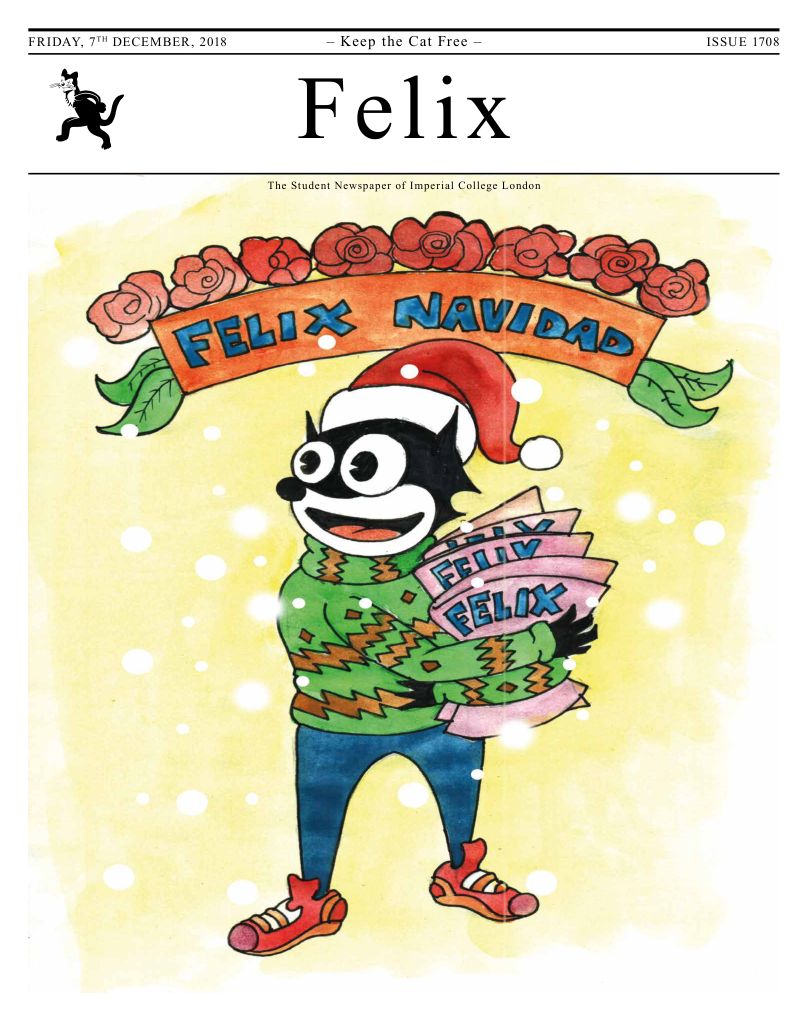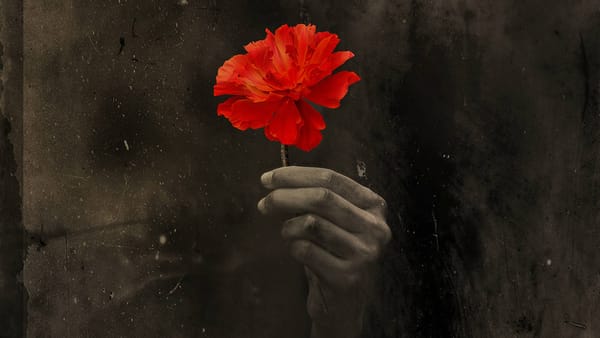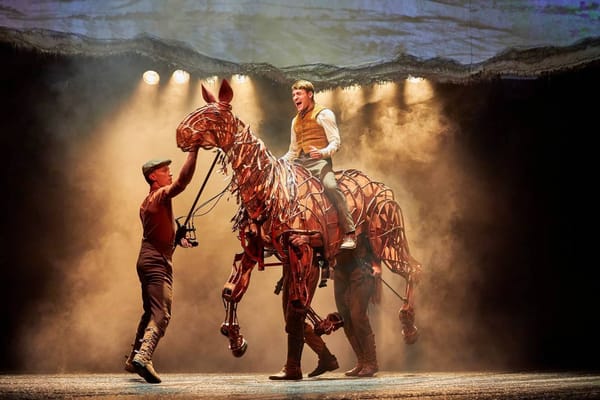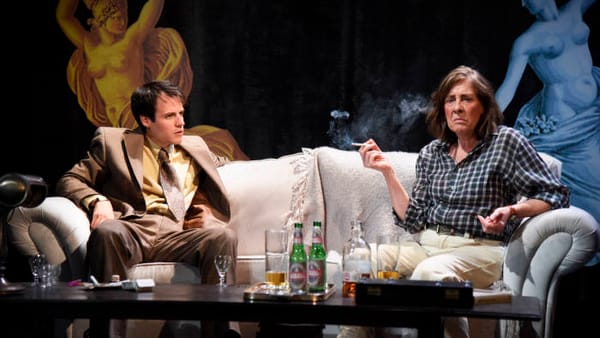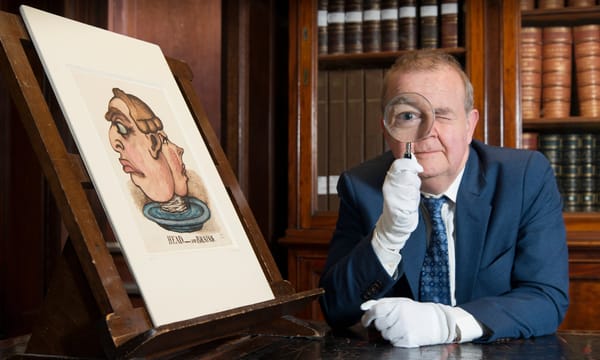Nick Makoha: poetry on the boards
Award-winning poet Nick Makoha turns his hand to theatre with a show pregnant with beauty. Arts writer Calum Drysdale interviews him on his latest work, The Dark.

At the beginning of The Dark , Michael Balogun, one of the show’s two actors, introduces himself. “Hi,. I’m Nick”. We are then asked to close our eyes and remember that “You are me”. In this disarming way begins a play that subtly whisks the audience into the complicated and human world of Idi Amin’s Uganda, only to then run them screaming out of it again. Telling the story of poet and playwright Nick Makoha’s escape from Uganda, this is the kind of show that you dream about going to see as a student.
The entire story is told by a single actor and actress. They spin and whirl around each other, moving from character to character – each one defined less by the minor clothing changes but by the huge changes the actors themselves make, altering voice and body like contortionists to welcome us into the world they have created.
“At every moment on stage, there are these two characters. They are always on stage. For an hour and 10 minutes these two actors have to be on all the time. It is very intense for the actors and the audience,” explains Nick when I ask him about it.
Meeting Nick Makoha is like stepping onto a cruise liner. He hums with a vast sub-audible energy and a mind made of bright and spinning wheels.
“There is always the duality of the two characters, the pairs that bounce off each other.”. This is more than just guff. The play manages to make scenes alternatively very full and very lonely. We move from a crowded bus station onto the bus (or matatu) heading to the Kenyan border – using only some benches and a hanging structure representing the baggage rack of the bus, piled high with peoples’ lives – to the lonely road plagued with checkpoints and soldiers who are a mix of high, bored and greedy.
I ask him how he manages to bring people with him into the African world of his childhood. “When you are watching Star Wars, you totally believe you are on Tatooine or the Death Star.” He sighs; this is a question, I think, that he has answered before. “People will think this isn’t my world, but they [the actors] bring across the humanity and allow you to suspend your disbelief – to make this your story, make this a story that you are willing to watch without questioning, with the same inquisitiveness of a child”.
He goes on to talk about how “in many parts of the world people have an image of that part of the world. I tried to strip away that version of Uganda. Just to tell you a story about a mother and a son on a bus and the people that they met. This becomes a story about the thorough investigation of two characters.”
For Nick, a lot of our discomfort when engaging with Africa as a continent stems from our lack of familiarity with the people there. “I could say America is nice or I could show you some Americans. I could say that Uganda is a very strange place or instead let me tell you about this mother and her son.”
He laughs. “Though I am a metic. My metic experience is unique and I cannot speak for all of the continent” Metic. The word crops up again and again. Literally ‘a foreigner living in an ancient Greek city who had some of the privileges of citizenship’, the word has come to represent those immigrants stuck in a penumbra between their country of birth and their adopted country, “an increasingly common situation nowadays”.
What Nick stresses over and over is that the play was never intended to be about Uganda. It was meant to be about people, Ugandans, who had to flee their country of birth and set up a new home elsewhere. The play’s greatest success is how, even after the words that begin the play [“You are me”] are an hour and ten in the past, Nick has been so successful in his spinning of the world around the audience that when we – Nick and us – are confronted by the immigration officer at Heathrow asking why we don’t have the correct papers, it feels like an unjustified attack. We are made the immigrant and it is hard and shocking. Having grown accustomed to voices speaking in a thick and easy Ugandan accent, the sound of clipped and too-perfect vowels challenging us, questioning us, and doubting us hits like a train. Nick Makoha has crafted a masterpiece that emerges from the true and silent dark of unlit Ugandan roads, not to challenge us but to welcome us and ask us in its insistent and convincing tones to go forth and challenge with it.
-4 stars


